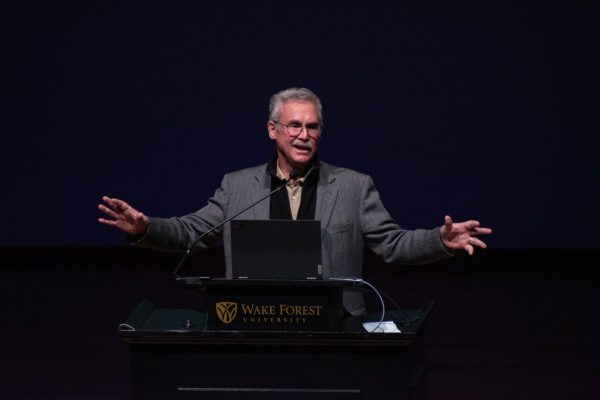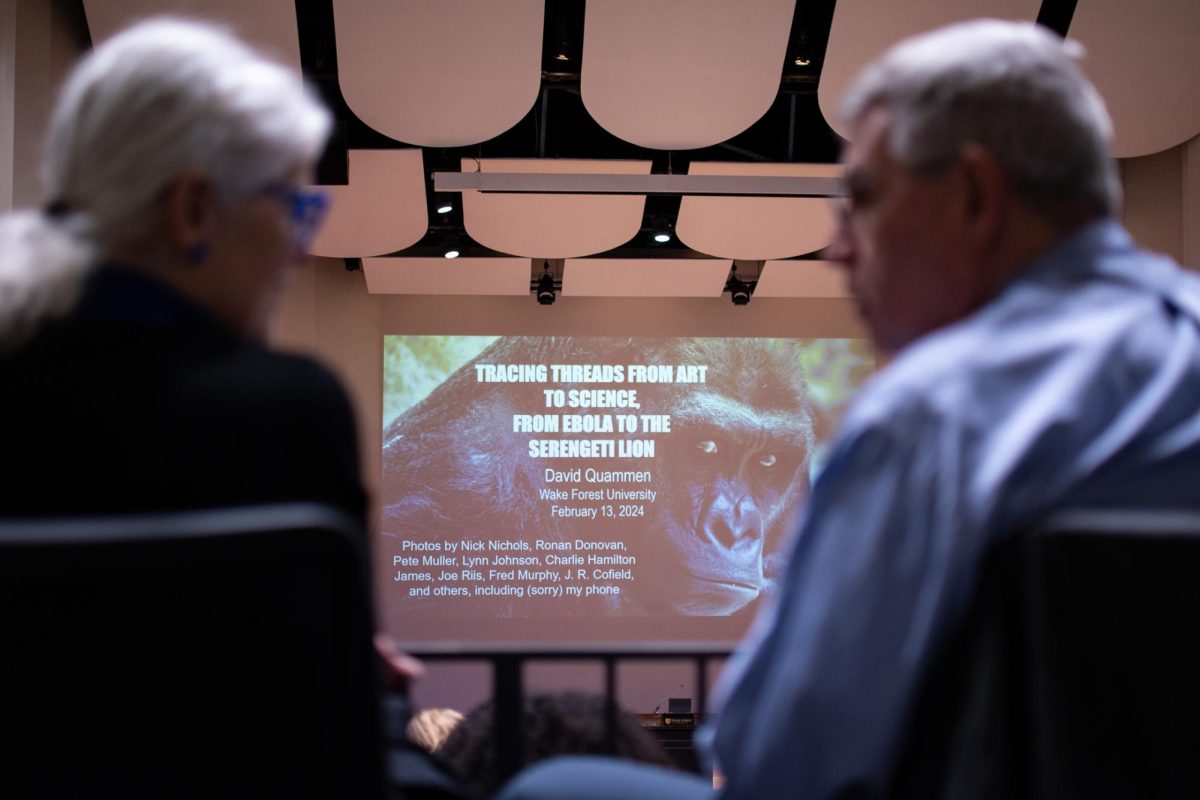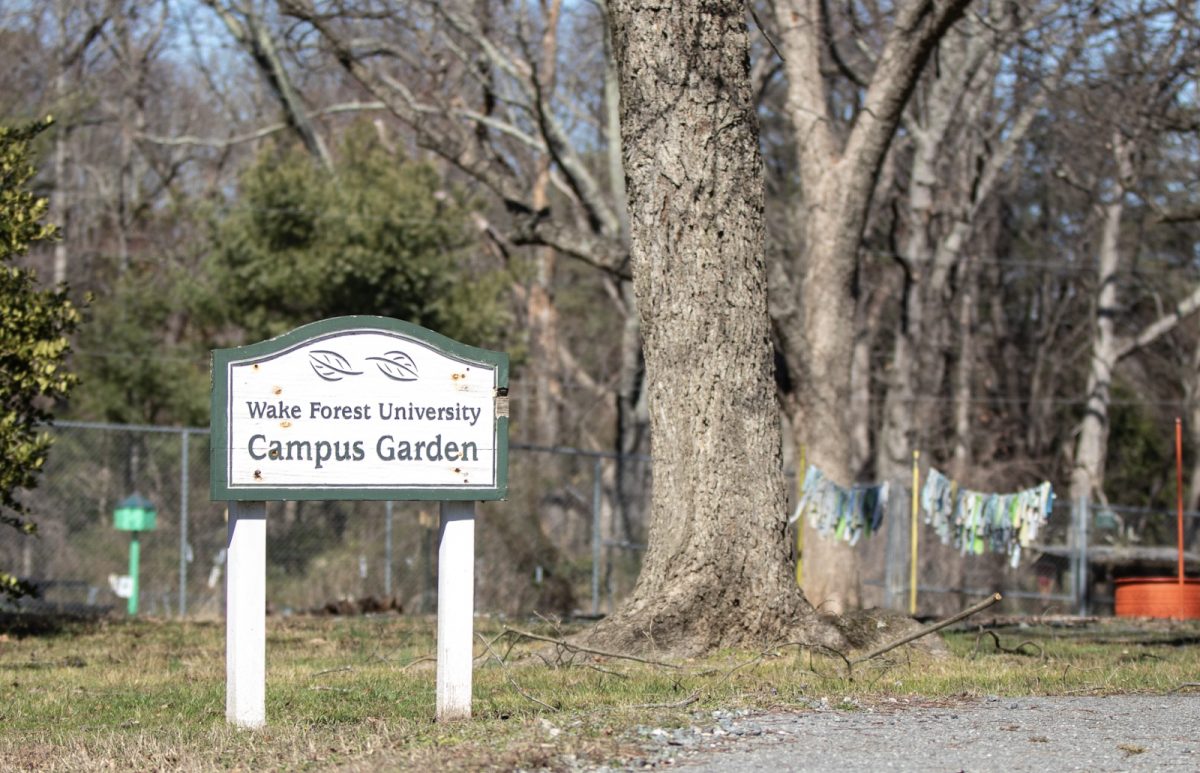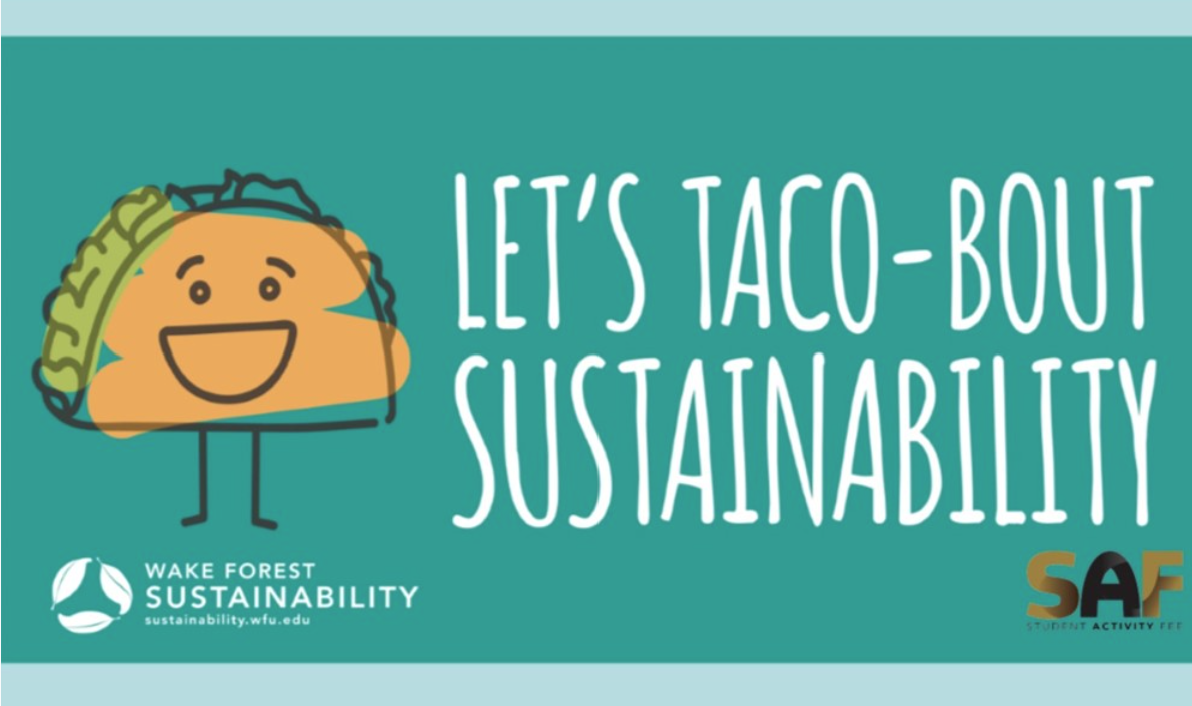David Quammen, an eminent journalist and writer who focuses on nature and epidemiology, visited Wake Forest on Tuesday, Feb. 13. The author gave a speech on his childhood, his coming-of-age story and his career following in the footsteps of scientists and tracing viruses.
Quammen was invited as this year’s keynote speaker by the Office of Sustainability, which hosts a new environmentally aligned guest each year. The event was open to Wake Forest faculty, students and staff, as well as community members.
Quammen’s keynote address featured his journey of transitioning from a novelist to a successful non-fiction writer. He aims to bring human elements into science in order to connect with his audience — making science more accessible.
“I was very lucky,” Quammen said in his speech. “I knew early on that I wanted to be a writer or else nothing. So I was ready to pay 13 years of dues or whatever. I would rather be a bartender and save my energy for the writing I was doing.”
Quammen said he accepted the possibility that he may be a night clerk in a Motel 6 at the age of 59 with 11 unpublished novels.
“If they were good novels, […] I told myself that’d be okay,” he said.
After two rejected manuscripts, Quammen realized that writing novels was not his forte — and so he became a nonfiction writer. Quammen rekindled his childhood passion for nature by taking classes in zoology at the University of Montana and writing for the natural science column of the Outside magazine. Following that experience, Quammen was recruited by the National Geographic magazine to accompany a conservationist on a 2,000-mile journey in Central Africa.
Quammen told his listeners the lessons he learned during his time bushwhacking across the Congo, from bathing every night to avoid sweat bees to wardrobe changes.
“I had Patagonia shirts and Teva sandals, and I walked in them because it’s much easier to keep human skin clean and dry than any kind of cloth in the understory of [the] closed-canopy Congo forest,” Quammen said.

Woods Curry, a Wake Forest senior majoring in health and exercise science, attended the event and had previously encountered Quammen’s 2013 National Geographic article “The Short Happy Life of a Serengeti Lion,” which details the life of C-boy, a lion.
Curry connected Quammen’s passion for conservation with his own experience studying abroad under Wake Forest Professors Dr. Miles Silman and Justin Catanoso in the summer of 2022.
“I went to Peru, and in the Amazon we were studying biodiversity and gold mining going on there,” Curry said.
During his time in the Congolian rainforests, Quammen’s interest in zoonotic diseases was sparked by an excursion near the forest where Ebola was spawned. In the following years, Quammen read ecology and evolutionary biology, and he went on several other expeditions to understand the “spillover” of animal-carried viruses into the human world.
“I realized that it was important to help people — general readers, not science nerds — understand the important basic concepts of [zoonotic disease],” Quammen said.
He continued: “Why do animal viruses become human viruses? It’s not because the viruses have anything against us. They can’t walk, they can’t run, they can’t swim, they can’t fly, they ride. They ride subtle creatures, they ride animals.”
Quammen most recently published Breathless in 2022 about the COVID-19 pandemic and continues where his previous line of research on pandemics and epidemiology left off.
Although Quammen ran out of time to delve into the full breadth of his experiences, his talk left an impression on audience members like Curry.
“Something that sticks out to me about Quammen was his willingness to chase down a good story on a whim,” Curry said. “I really admire that because I wish to have that spontaneous energy in my own life.”








